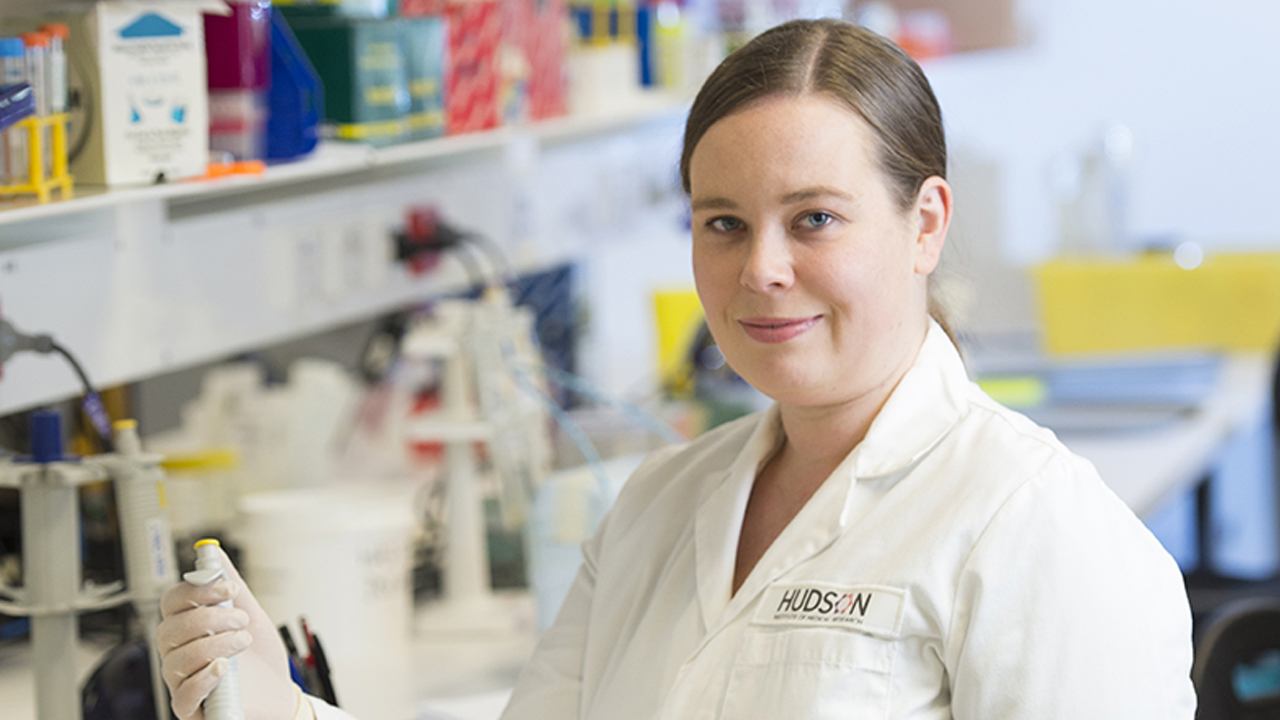Big benefits in detection and treatment of pancreatic cancer
By Hudson Institute communications. Reviewed by Dr Daniel Croagh

Researchers looking into one of the deadliest forms of cancer have made a big breakthrough by drilling down to the molecular level.
Pancreatic cancer is predicted to be the second commonest cause of cancer related death by 2030 but diagnosing it can sometimes be difficult and often relies on very small biopsies taken during endoscopy of the pancreas.
Now researchers at Hudson Institute and Monash Health led by Dr Joanne Lundy and Dr Daniel Croagh have used molecular analysis of these biopsies to not only improve the accuracy of this test, but also help to identify treatments that target a patient’s specific condition.
Gene-based diagnosis
Their work has been published in the journal Clinical Cancer Research, detailing their development of a novel “genetic” diagnosis of pancreatic cancer.
Lead author, Dr Joanne Lundy, said it is not uncommon for patients to have to undergo multiple procedures to establish a diagnosis of pancreatic cancer: “Our ‘genetic signature’ shows that a molecular diagnosis can be made on biopsies which might otherwise have been considered inadequate, and may reduce the need for patients to have multiple procedures which could delay their treatment.”

Lecturer in Surgery, Dr Daniel Croagh, said If this approach becomes widely accepted patients may be able to have an earlier diagnosis of pancreatic cancer.
“Almost 4000 new cases of pancreatic cancer are diagnosed in Australia each year and approximately 3600 people die from the disease every year,” Dr Croagh said.
“By identifying a particular mutation in the cells taken as biopsies, we were able to increase the accuracy of pancreatic cancer detection in this study from 78.6 per cent to more than 91 per cent.”
An earlier diagnosis of pancreatic cancer, using molecular diagnosis may also allow patients to begin treatment sooner.
Personalised therapy
“In addition to a more accurate diagnosis, these techniques can be used to more accurately characterise the genetic landscape of the tumour, facilitating the introduction of personalised therapy,” he said.
This research project was funded by the Victorian Cancer Agency and the team hopes this research will trigger further efforts to develop better diagnosis and more targeted treatment of this disease.
Precision therapy is a rapidly evolving field in pancreatic cancer, a disease where we desperately need better treatment options,” Dr Lundy said. “Using these biopsies to perform molecular analysis will hopefully open doors to more of our patients accessing personalised therapies and clinical trials, raising hope for improved outcomes.”
This work is being expanded as part of prospective study examining comprehensive molecular profiling in pancreatic cancer, thanks to further funding from the Australian Pancreatic Cancer Foundation, PanKind.
About Hudson Institute
Hudson Institute’ s research programs deliver in three areas of medical need – inflammation, cancer, women’s and newborn health. More
Hudson News
Get the inside view on discoveries and patient stories
“Thank you Hudson Institute researchers. Your work brings such hope to all women with ovarian cancer knowing that potentially women in the future won't have to go through what we have!”





